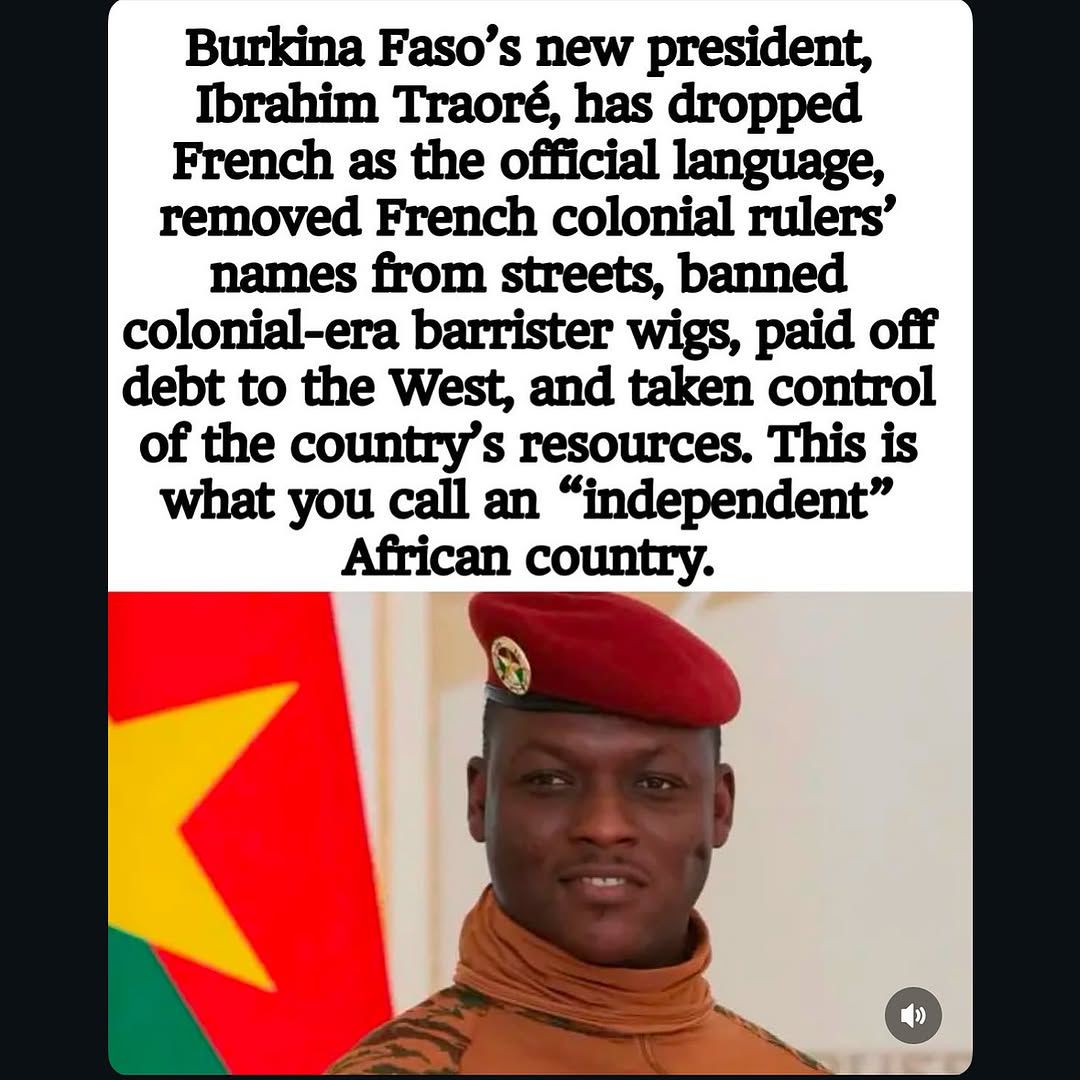In a bold and unprecedented move, Burkina Faso under President Ibrahim Traoré has embarked on a journey of reclaiming its sovereignty and redefining what true independence means for African nations. Since assuming office, Traoré has introduced a series of transformative changes aimed at dismantling remnants of colonial rule and fostering a sense of national pride and autonomy.
One of the most striking decisions has been dropping French as the country’s official language. While French has long been a colonial legacy in Burkina Faso, Traoré’s decision signals a desire to embrace indigenous languages and cultures that resonate more deeply with the Burkinabé people. This move is emblematic of a broader push to decolonize the nation’s identity and reclaim its heritage.
In addition, streets named after French colonial figures have been renamed, a symbolic yet powerful act that honors local heroes and history over colonial narratives. The banning of colonial-era barristers’ wigs in courts further exemplifies Traoré’s vision of a modern, culturally aligned judicial system free from outdated colonial traditions.
Perhaps most remarkable is Traoré’s economic strategy. By paying off debts owed to Western countries, Burkina Faso has liberated itself from the financial grip that has often hindered true independence in Africa. Traoré has also taken control of the nation’s resources, ensuring that the wealth generated from its lands benefits the Burkinabé people rather than foreign entities.
These actions signify more than just policy changes—they represent a bold statement of self-determination. Traoré’s leadership reflects a growing wave of African nations questioning the long-standing systems that perpetuate economic and cultural dependency on former colonial powers.
Critics may argue that such rapid shifts could bring challenges, including strained international relations and internal adjustments. However, Traoré’s vision aligns with a growing call across the continent for African countries to assert their sovereignty and build systems that prioritize their people and resources.
Burkina Faso’s journey under President Ibrahim Traoré is a reminder of the strength and potential of an independent Africa. By taking ownership of its identity, economy, and future, the nation is setting an example for others to follow. This is not just about breaking away from colonial legacies—it’s about building a new legacy of African resilience, pride, and empowerment.
Burkina Faso is showing the world what it means to truly stand tall as an independent African nation. The era of relying on foreign powers to dictate the destiny of the continent is waning, and a new dawn of self-determination is rising.
